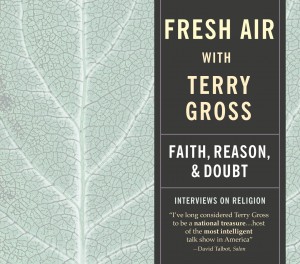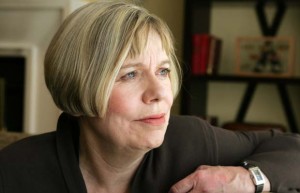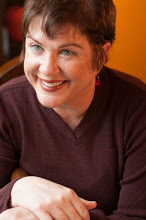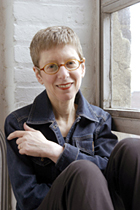 Quietly, movingly, hidden among their many programs dedicated to Oscar nominated actors, country western singers, and political talking heads, public radio’s Fresh Air with Terry Gross has provided a platform for candid reflections from a diverse group of guests on the subject of faith. The impressive variety and depth of these conversations is made clear by an expertly curated audio collection entitled FAITH, REASON, AND DOUBT, which gives voice to an incredible array of religious perspectives, from conservative to radical, individual to institutional, Christian to Jew, and Muslim to atheist. Guests from as far afield as Bishop Gene Robinson (the first openly gay leader of the U.S Episcopal Church), Moral Majority co-founder Tim LaHaye, Islamic scholar Akbar Ahmed, evolutionary biologist (and atheist) Richard Dawkins, geneticist (and evangelical Christian) Francis Collins, and author Reynolds Price each offer their honest, personally relevant views on faith. When considered together, these and others form a dynamic representation of the ongoing, universal debate we have as individuals with the place we save in our lives for religion – or it’s opposite.
Quietly, movingly, hidden among their many programs dedicated to Oscar nominated actors, country western singers, and political talking heads, public radio’s Fresh Air with Terry Gross has provided a platform for candid reflections from a diverse group of guests on the subject of faith. The impressive variety and depth of these conversations is made clear by an expertly curated audio collection entitled FAITH, REASON, AND DOUBT, which gives voice to an incredible array of religious perspectives, from conservative to radical, individual to institutional, Christian to Jew, and Muslim to atheist. Guests from as far afield as Bishop Gene Robinson (the first openly gay leader of the U.S Episcopal Church), Moral Majority co-founder Tim LaHaye, Islamic scholar Akbar Ahmed, evolutionary biologist (and atheist) Richard Dawkins, geneticist (and evangelical Christian) Francis Collins, and author Reynolds Price each offer their honest, personally relevant views on faith. When considered together, these and others form a dynamic representation of the ongoing, universal debate we have as individuals with the place we save in our lives for religion – or it’s opposite.
 Having sought answers in multiple religions, author and ex-nun Karen Armstrong finds that “the golden rule is the essence of religion” and its ultimate goal is the achievement of “practical compassion.” Skillful memoirist Shalom Auslander reflects on his ultra-Orthodox Jewish upbringing, and his attempts to comprehend a terror-wielding god of vengeance, to “get the character out of my head and move on.” With the help of his father, Khaled Abou El Fadl makes a difficult journey from the Islamic extremism of his youth to become a powerful voice of moderation. Belief.net founder Steven Waldman debunks many of the myths that have grown around the US founding fathers’ limited dedication to religious freedom. Episcopal priest Barbara Brown Taylor recalls wanting “to move in with God on a full time basis” but ultimately, for her, “becoming a professional holy person set up some walls between me and God and me and other people that ended up not being good for my soul.” Author Michael Wex explores the often humorous legacy carried forth via remnants of the Yiddish language for contemporary Jews, including the ability “to complain their way through satisfaction.” Black Liberation Theology proponent James H. Cone attempts to unite the motivations of both Malcolm X and Martin Luther King, “teaching us how to be both unapologetically black and Christian at the same time.” Pastor John Hagee believes “New Orleans had a level of sin that was offensive to God, and they were the recipients the judgment of God” in the form of Hurricane Katrina. No subject is taboo at this particular convention of religious thinkers, and Terry Gross is fearless in her examination of the motivating factors behind each perspective.
Having sought answers in multiple religions, author and ex-nun Karen Armstrong finds that “the golden rule is the essence of religion” and its ultimate goal is the achievement of “practical compassion.” Skillful memoirist Shalom Auslander reflects on his ultra-Orthodox Jewish upbringing, and his attempts to comprehend a terror-wielding god of vengeance, to “get the character out of my head and move on.” With the help of his father, Khaled Abou El Fadl makes a difficult journey from the Islamic extremism of his youth to become a powerful voice of moderation. Belief.net founder Steven Waldman debunks many of the myths that have grown around the US founding fathers’ limited dedication to religious freedom. Episcopal priest Barbara Brown Taylor recalls wanting “to move in with God on a full time basis” but ultimately, for her, “becoming a professional holy person set up some walls between me and God and me and other people that ended up not being good for my soul.” Author Michael Wex explores the often humorous legacy carried forth via remnants of the Yiddish language for contemporary Jews, including the ability “to complain their way through satisfaction.” Black Liberation Theology proponent James H. Cone attempts to unite the motivations of both Malcolm X and Martin Luther King, “teaching us how to be both unapologetically black and Christian at the same time.” Pastor John Hagee believes “New Orleans had a level of sin that was offensive to God, and they were the recipients the judgment of God” in the form of Hurricane Katrina. No subject is taboo at this particular convention of religious thinkers, and Terry Gross is fearless in her examination of the motivating factors behind each perspective.
 Perhaps the highlight of the collection is an interview with comic-turned-Catholic-turned-atheist Julia Sweeney. She gives an account of her personal journey through religion that began with an Irish Catholic upbringing and fairly traditional application of religion as a balm to ease her family’s pain when they lost her brother to cancer. Later as an adult, she delves more deeply into her religious life when her long-time relationship ends. At the time, this mid-life religious reawakening provides her with buoyancy, and then focus, as she decides to embrace Catholicism with renewed passion through the lens of added experience. But the critical thinking she applies in her reading of the bible is not only rebuffed by religious leadership, but leads her to embrace an understanding of her moral life outside of Catholic boundaries. She finally sees herself as an atheist who recognizes the utility of religion, and the value it has for people, but ultimately, she sees that value as a limiting one. For her, the freedom to “have internal thoughts that are completely my own” outweighs the benefits of adhering to a behavior-prodding scripture that is continually in conflict with itself. As Sweeney states, she “became a more moral person after I stopped believing in God because I saw myself as a member of a community that had certain responsibilities… to be trustworthy… compassionate.” She doesn’t claim that this phenomenon is impossible within the context of religion, but that a moral life is at least equally attainable without a belief in God. Through the many phases of her journey, Sweeney builds perspective with all of the sharp-eyed observational skills that come with life as a comedian: The ability to laugh through pain and find a greater understanding of your place in the world.
Perhaps the highlight of the collection is an interview with comic-turned-Catholic-turned-atheist Julia Sweeney. She gives an account of her personal journey through religion that began with an Irish Catholic upbringing and fairly traditional application of religion as a balm to ease her family’s pain when they lost her brother to cancer. Later as an adult, she delves more deeply into her religious life when her long-time relationship ends. At the time, this mid-life religious reawakening provides her with buoyancy, and then focus, as she decides to embrace Catholicism with renewed passion through the lens of added experience. But the critical thinking she applies in her reading of the bible is not only rebuffed by religious leadership, but leads her to embrace an understanding of her moral life outside of Catholic boundaries. She finally sees herself as an atheist who recognizes the utility of religion, and the value it has for people, but ultimately, she sees that value as a limiting one. For her, the freedom to “have internal thoughts that are completely my own” outweighs the benefits of adhering to a behavior-prodding scripture that is continually in conflict with itself. As Sweeney states, she “became a more moral person after I stopped believing in God because I saw myself as a member of a community that had certain responsibilities… to be trustworthy… compassionate.” She doesn’t claim that this phenomenon is impossible within the context of religion, but that a moral life is at least equally attainable without a belief in God. Through the many phases of her journey, Sweeney builds perspective with all of the sharp-eyed observational skills that come with life as a comedian: The ability to laugh through pain and find a greater understanding of your place in the world.
 At surface, this assemblage of seemingly incongruous beliefs might seem impossible to reconcile. However, its one unifying quality is a triumph for all involved: The consistently inspired pairings of Terry Gross with intelligent, thoughtful, and often conflicted individuals who have clearly wrestled with big questions in their lives, sometimes as a result of devastating events. The resulting conversations offer some of the most revelatory dialogue heard on public radio, or anywhere else for that matter. Gross and her interviewees bring out the best in each other, while encouraging internal responses from us, the listeners. As equal partners in the ongoing debate, we’re inspired to reactions that we might find surprising: Predictable points of agreement for some, disturbing corners of conflict for others, but there is no doubt in my mind that the listening experience found here is a rewarding one.
At surface, this assemblage of seemingly incongruous beliefs might seem impossible to reconcile. However, its one unifying quality is a triumph for all involved: The consistently inspired pairings of Terry Gross with intelligent, thoughtful, and often conflicted individuals who have clearly wrestled with big questions in their lives, sometimes as a result of devastating events. The resulting conversations offer some of the most revelatory dialogue heard on public radio, or anywhere else for that matter. Gross and her interviewees bring out the best in each other, while encouraging internal responses from us, the listeners. As equal partners in the ongoing debate, we’re inspired to reactions that we might find surprising: Predictable points of agreement for some, disturbing corners of conflict for others, but there is no doubt in my mind that the listening experience found here is a rewarding one.

Terry Gross is my favorite interviewers on radio or any other media. Her preparation is astounding. She has introduced me to Leonard Cohen, for which I shall be grateful. And many authors whom I admire. God bless you, Terry. Irony intended.